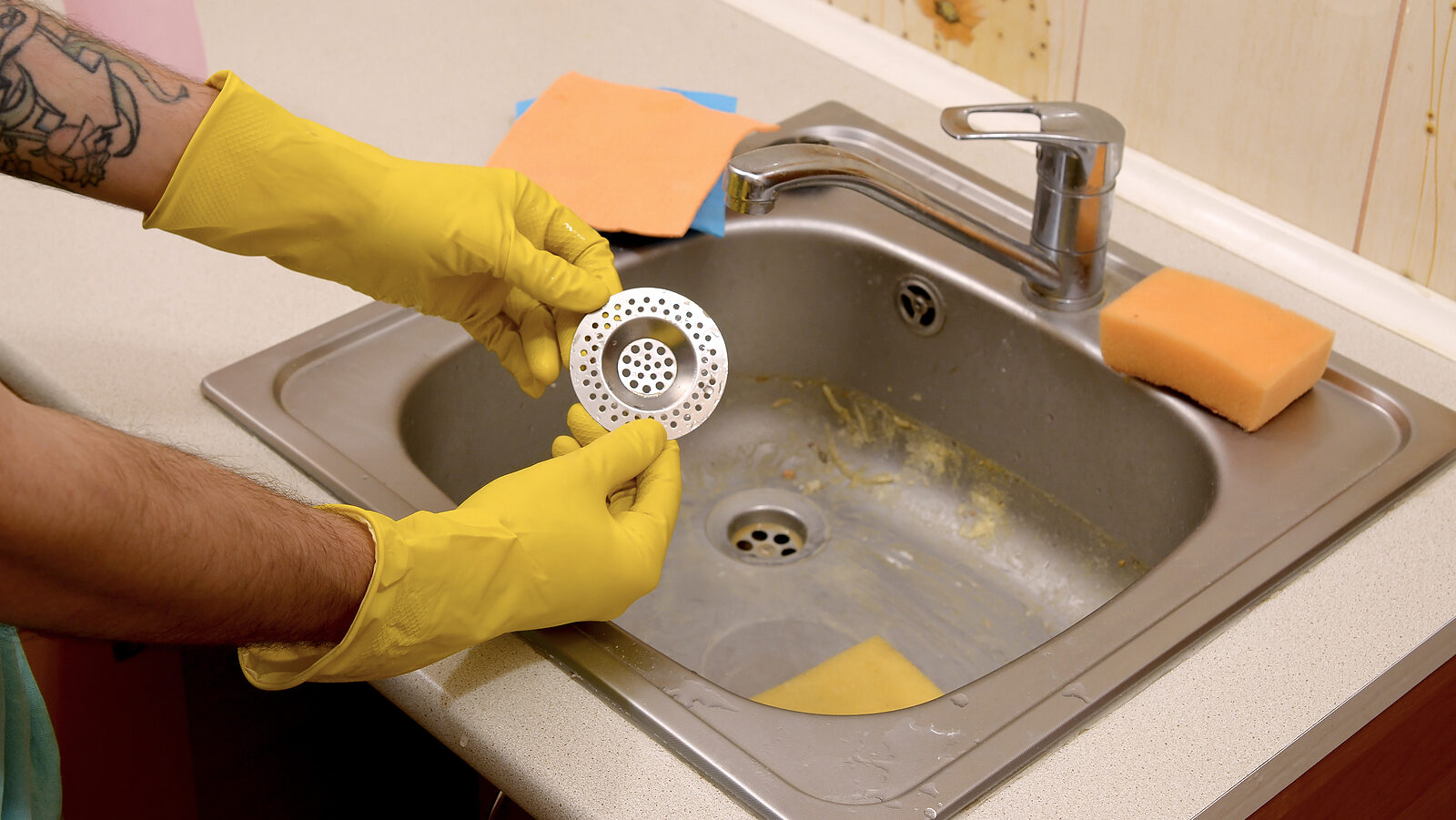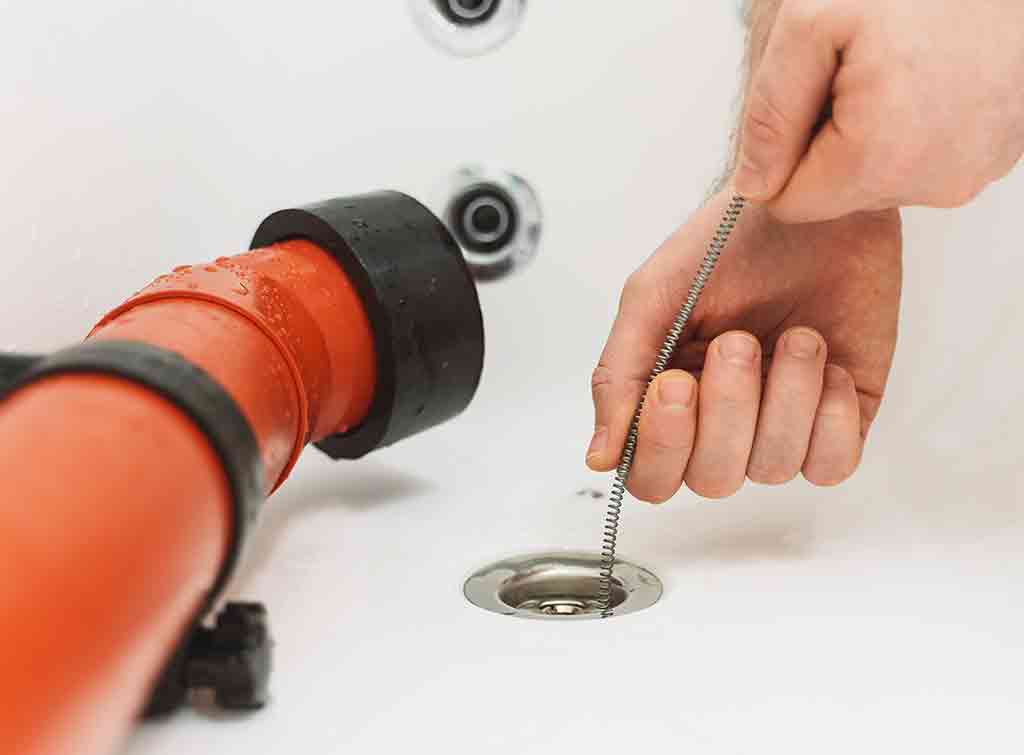Handy Techniques For Correcting A Slow-Draining Sink
Handy Techniques For Correcting A Slow-Draining Sink
Blog Article
Presented here on the next paragraphs you can locate a bunch of brilliant insight relating to Solved! How to Fix a Slow Sink Drain.

Intro
We've all existed: You're brushing your teeth or cleaning your hands, and you observe the water merging in the sink. Instead of promptly swirling down the tubes, it remains, transforming your once-refreshing morning regimen into a small swamp scene. A slow-draining sink isn't just annoying; it's typically a sign of bigger pipes problems lurking underneath the surface. Fortunately is that a lot of slow-draining sinks can be taken care of with a little know-how, a couple of standard tools, and some patience. Prepared to tackle this job head-on? Let's roll up our sleeves and dive right in.
Understanding the Sources Of a Slow-Draining Sink
Before you begin poking around in your pipelines, it helps to recognize what may be causing the stagnation. Understanding the source makes it less complicated to select the appropriate repair.
Devices and Products You'll Require
The right devices make all the distinction. Luckily, you will not need a completely stocked plumbing technician's van to do the job.
Step-by-Step Guide to Repairing a Slow-Draining Sink
Currently, allow's enter into the nitty-gritty. This detailed procedure will direct you through simple techniques to restore your sink's water drainage.
Step 1: Remove and Clean the Stopper
Typically, the stopper (that little plug you lower to obstruct water) is the first wrongdoer. Remove it meticulously and clean off any hair or substance entraped around its base. Rinse it extensively prior to putting it back in place.
Step 2: Make Use Of a Bettor to Remove Particles
Got that bettor ready? Setting it over the drainpipe and give it a few company pumps. The idea is to develop suction that can loosen any kind of blockage. If you see little bits of particles floating up, you're on the appropriate track.
Step 3: Attempt a Drain Snake or Cord Wall Mount
If the plunger does not suffice, it's time to highlight the drain serpent. Gently feed it into the drain and twist as you go. You might really feel some resistance-- that's likely the clog. Maintain twisting and pulling till you eliminate the blockage. If you don't have a drain serpent, a corrected the alignment of wire hanger can operate in a pinch.
Tip 4: Apply a DIY Drainpipe Cleanser
A natural cleaner made from cooking soft drink and vinegar can break down recurring crud. Pour half a mug of baking soda right into the drainpipe, complied with by half a cup of vinegar. Allow it fizz for around 15 minutes, then flush with warm water. This chain reaction usually does wonders for small blockages.
Step 5: Reconstruct and Evaluate the Sink
Put whatever back with each other and run the tap. Does the water currently swirl down the drain at a commendable speed? If yes, provide on your own a pat on the back. Otherwise, don't misery-- there are still a couple of more tricks up your sleeve.
Vital Tools for Do It Yourself Repairs
A bettor is your go-to beginning point. A small, sink-sized bettor develops suction that can dislodge small obstructions. For even more consistent clogs, a drain snake (sometimes called a plumber's auger) works marvels. A pair of handwear covers, a flashlight, and possibly a set of safety safety glasses are additionally helpful.
Recommended Cleaning Solutions
Moderate dish soap and hot water can help break down greasy accumulation. A combination of baking soda and vinegar is a reliable natural remedy, and enzymatic cleansers supply an even more environment-friendly strategy. Maintain chemical drain cleaners as a last option, as they can be rough on your pipes.
Common Culprits Behind Slow Water Drainage
So, what's blocking things up? Commonly, it's a mixture of everyday particles-- think hair, soap scum, toothpaste deposit, and remaining food fragments. With time, these little bits collect and cling to the pipe walls, slowly tightening the passage and making it harder for water to travel through. Sometimes, mineral deposits from difficult water can additionally include in the crud, creating the ideal tornado for persistent clogs.
When is it Time to Do Something About It?
If you observe the water draining pipes slower than typical, it's a great concept to step in earlier rather than later. Waiting as well long might bring about complete clogs, undesirable odors, or even pipeline damage. If the water takes greater than a couple of seconds to clear out after turning off the faucet, consider it a warning and prepare yourself to put on your do it yourself hat.
Safety First: Safety Measures and Prep work
Prior to you launch into unclogging setting, consider safety. You're handling possibly dirty water and debris, so slip on a set of handwear covers. If you're using chemical cleaners, make sure the area is well-ventilated and adhere to the guidelines on the tag.
Protective Equipment and Workspace Configuration
Set some old towels or dustcloths around the sink location to capture dashes. Clear away any kind of products that could get in your means, like soap dispensers or toothbrush holders. See to it you have great illumination-- get a flashlight if needed.
Different Approaches for Stubborn Clogs
Not all obstructions are produced equal. If your sink still rejects to work together, consider these different solutions.
Baking Soda and Vinegar Method
We already discussed this, yet it's worth keeping in mind again. This mild, environment-friendly method is much safer than chemical cleansers and commonly rather reliable.
Enzymatic Drain Cleansers
Enzyme-based cleansers utilize natural bacteria to digest organic matter. They're an exceptional selection if you're aiming to prevent severe chemicals. Simply bear in mind, they may take a bit longer to function their magic.
Chemical Drain Cleaning Company: Pros and Cons
Chemical cleaners can blow up with tough blockages quickly, yet they're not without drawbacks. They can generate warmth and fumes, damage pipes if made use of excessively, and pose ecological risks. Use them moderately, and constantly comply with the directions thoroughly.
Preventive Measures to Maintain Your Sink Flowing
Avoidance is the most effective remedy. By adopting a couple of straightforward routines, you can maintain your sink from slowing down to begin with.
Normal Cleaning Up Habits
Clean down the sink container and fixture location routinely. Get rid of hair or food particles before they have a chance to wash down the drainpipe.
Staying Clear Of Dangerous Compounds Down The Tubes
Think twice prior to dumping coffee premises, oil, or fibrous vegetable scraps down the sink. These wrongdoers hold on to pipe wall surfaces, producing clogs over time.
Routine Upkeep Checks
Set up a fast regular monthly assessment. Run hot water via the sink for a couple of minutes, paying attention to the flow. If it appears slow-moving, act quick before it comes to be a full-on clog.
When to Call a Professional Plumbing
Sometimes, despite just how difficult you try, that block simply won't move. That's when it's time to generate the pros.
Indicators That Suggest a Much More Major Concern
If your sink drains gradually in spite of multiple efforts, or if you notice water supporting in various other components (like your shower or commode), you may have an extra severe pipes concern hiding much deeper in the system.
Balancing DIY Initiatives with Specialist Help
While do it yourself can save you money and supply a sense of accomplishment, there's no pity in calling a specialist. A professional plumber can analyze your entire pipes arrangement, making sure there's no underlying damage or long-term issue that could cost you much more in the future.
Comparing Costs and Long-Term Solutions
Prior to making a decision, think about the big picture. An inexpensive, quick fix could address the trouble temporarily, yet purchasing a much more long-term option might conserve you money and anxiety in the long run.
Considering the Expenditures of DIY vs. Specialist Solutions
Do it yourself repairs commonly set you back little bit greater than the rate of a plunger or a bottle of baking soft drink. Professional services, on the other hand, featured a price tag yet may protect against repeated issues and expensive repair work later on.
Purchasing Quality Fixtures and Upgrades
If your sink's design contributes to regular blockages, it might be worth updating to higher-quality components or altering the plumbing format. Consider this an investment in your home's functionality and convenience.
Conclusion
A slow-draining sink can seem like a small irritability, however it's often an indicator that your pipes needs a little tender loving care. By comprehending the source, using the right devices and methods, and dedicating to straightforward preventive measures, you can keep your sink streaming easily. And when all else stops working, never wait to contact a specialist-- your home's plumbing deserves the investment in care and maintenance.
Three Common Ways to Fix a Slow Drain
Baking Soda Method
Boil a full pot of water. Measure out cup of baking soda and pour it down the drain. Then take cup of the magical cleansing substance known as white vinegar and drop that down there too. Allow the mixture to fizz in the drain for five minutes as the vinegar and baking soda combine. Now dump in that whole pot of boiling water. This combination of cleaning substances should clear out anything that is causing your sink to drain slowly. If it doesn t...
Zip-It
If the baking soda method doesn t clear out your drain, it may be because a significant amount of hair and/or other debris has collected there and you need to remove it. Purchase a Zip-It tool at any home improvement or hardware store and insert it into your drain. It will catch any collected hair or debris that s blocking the flow of water. Pull it out. If it s got a big clump of hair, etc. on the end, you ve probably got your culprit.
Drain Cleaner
If these methods don t work, there is the standard drain cleaner that you can also buy in a hardware store or even your local grocery store. It s better if you can use a household solution, but these drain cleaners often work in a pinch. They re very simple to use. You generally just dump them in your drain and wait. If even this method is not effective, it may be time to call the plumber.
https://www.mrrooter.com/oneida/about-us/blog/2017/july/three-common-ways-to-fix-a-slow-drain/

I ran across that content on 4 Tips to Fix a Slow Draining Sink while surfing around the search engines. Feel free to set aside a second to distribute this blog post if you enjoyed reading it. Thanks for taking the time to read it.
Click Here Report this page